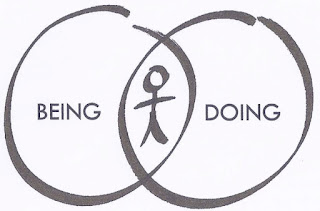Reflection for First Sunday of Advent
Brothers and sisters:
May the Lord make you increase and abound in love
for one another and for all,
just as we have for you,
so as to strengthen your hearts,
to be blameless in holiness before our God and Father
at the coming of our Lord Jesus with all his holy ones. Amen.
May the Lord make you increase and abound in love
for one another and for all,
just as we have for you,
so as to strengthen your hearts,
to be blameless in holiness before our God and Father
at the coming of our Lord Jesus with all his holy ones. Amen.
(1 Thessalonians 3:12-13 –
Second Reading of First Sunday of advent 2012)
Archbishop
Charles Chaput of Philadelphia recently wrote a very insightful article
for First Things about the challenges facing the Church in America today. He was reflecting on the troubling trends,
especially among youth and young adults and their attitudes towards religion in
general and Catholicism in particular. Indeed there are many issues and
obstacles the Church must face as we move forward in the years to come. We are
still reeling from the sex abuse scandals of the clergy while the laity
continues to ignore the Church’s teachings about sexuality and the human
person. As secular humanism grows the Church is finding itself more and more at
odds with the “progress” of our culture on marriage and conscience issues.
Culture wars rage between purity and pornography and respect for life and a fascination
with violence and death.
As we
enter into the season of Advent we are called to remember that this world is
not our home. We are in a perpetual Advent, not just as Christmas approaches,
but everyday as we await the coming of our Lord and the creation of a new
heaven and new earth. How then are we to live and react to a world that is
becoming increasingly hostile to peace, hope, faith, love, beauty and even God?
We
should look no further than the words of St. Paul in the second reading of this
first Sunday of Advent. We cannot allow ourselves to be baited into fighting
the culture from our flesh. We cannot allow fear or despair to cause us to lose
sight of our calling. Rather, as Paul prays for the Thessalonians, we must
increase in love for all while remaining blameless. Love must strengthen our hearts. Love must
bind us together. Love must be our witness to a world that continues to watch
us even as they try to discredit and marginalize us.
When
the angel came to Mary to announce the coming of the King he came to a people
who were marginalized, persecuted, oppressed and defeated. They looked for a
savior who would give them worldly victories. They wanted God to crush their
enemies under their feet. They wanted to be raised up in the sight of men so
all could see that they were the chosen ones. But God came as a baby. He came
in poverty, born in a stable. He came to show us a different way, the way of
love and sacrifice. He defeated an enemy more deadly, more depraved, and more
powerful than Rome. He came to defeat sin and death. His victory was not by
strength but by weakness. He won not through words but by his actions. He calls
us to follow his example, to love with all that we have to the point of death
even the very people who put the nails in his hands.
What
hope is there for the Church? If we love and remain blameless before God and
man there is more than hope, there is victory in Christ.



Comments